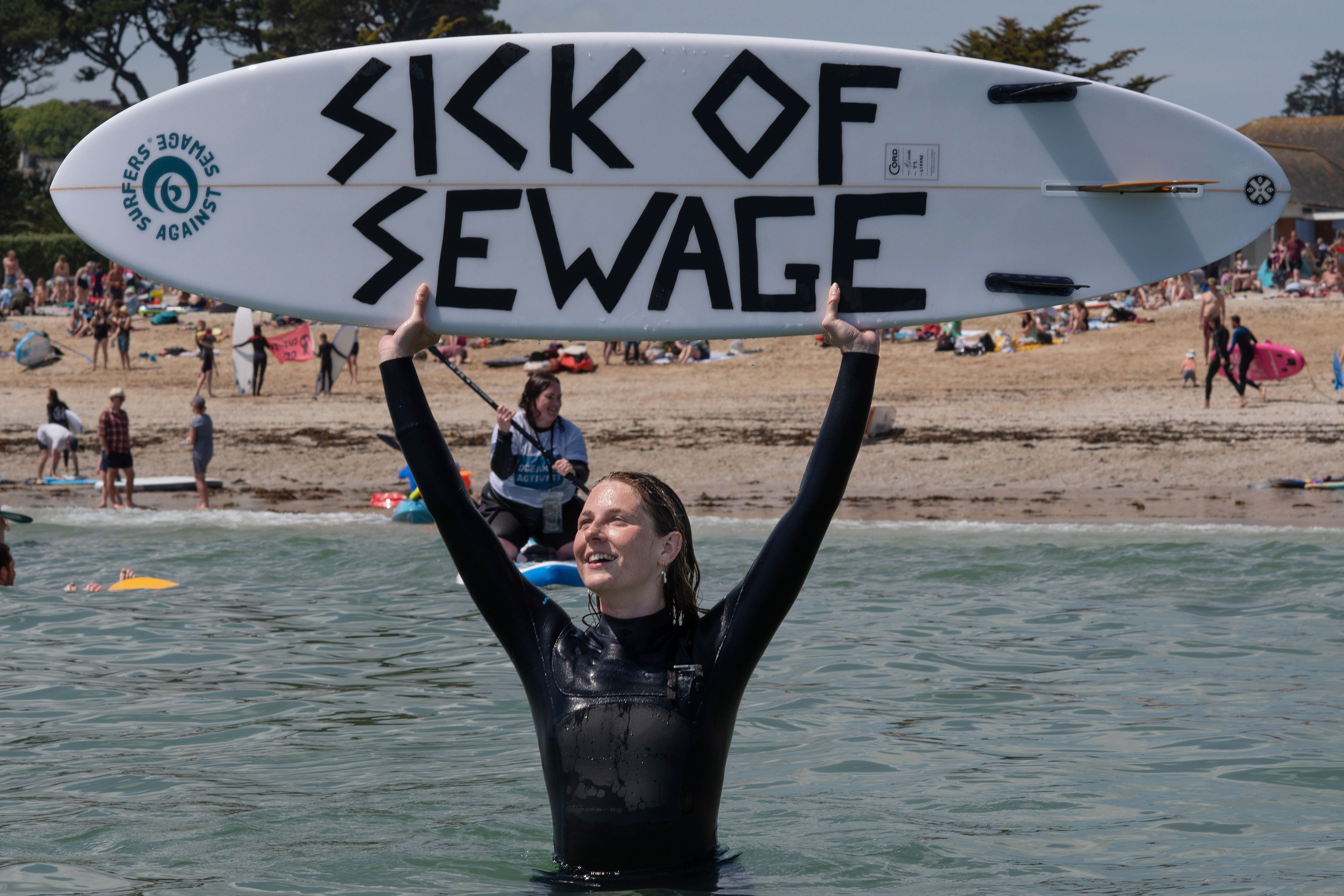Less than 10% of emergency overflows monitored for raw sewage, figures show
Unlike storm overflows, water companies are only permitted to use them as a last resort, such as during power failure or a breakdown of pumps.

Your support helps us to tell the story
From reproductive rights to climate change to Big Tech, The Independent is on the ground when the story is developing. Whether it's investigating the financials of Elon Musk's pro-Trump PAC or producing our latest documentary, 'The A Word', which shines a light on the American women fighting for reproductive rights, we know how important it is to parse out the facts from the messaging.
At such a critical moment in US history, we need reporters on the ground. Your donation allows us to keep sending journalists to speak to both sides of the story.
The Independent is trusted by Americans across the entire political spectrum. And unlike many other quality news outlets, we choose not to lock Americans out of our reporting and analysis with paywalls. We believe quality journalism should be available to everyone, paid for by those who can afford it.
Your support makes all the difference.Thousands of emergency overflows are not monitored for raw sewage discharge with information taken from only 10% of the total in England, a freedom of information (FOI) request has revealed.
There are 7,016 emergency overflows which, unlike storm overflows, are only permitted to be used in extreme situations such as electrical power failure, a mechanical breakdown of pumps, rising main failure or blockage of the downstream sewer.
Water companies are only required to monitor emergency overflows that discharge into shellfish waters, so only 686 emergency overflows recorded data in the last two years.
Of those, 102 discharged into shellfish waters 635 times in 2021 while the following year, 86 discharged 491 times.
It's not clear why, after the first incident, measures aren't being taken to prevent another emergency overflow discharge
More than 60% of the emergency overflows that discharged did so on multiple occasions, raising concerns among campaigners that water companies are breaching the terms of their permits without punishment.
Dr Laura Foster of the Marine Conservation Society, who submitted the FOI request to the Environment Agency, said: “Emergency overflows are designed to be used as a last resort.
“Yet, from the tiny amount of data we do have, we can see that these discharges aren’t an uncommon occurrence, and there are repeat offences.
“It’s not clear why, after the first incident, measures aren’t being taken to prevent another emergency overflow discharge.
“Water companies are paid to treat our sewage and they need to be fulfilling this duty. The failure to put procedures in place, which they’re required to do, is putting marine life, and people, at risk.”
Last month the Guardian reported that 11 shellfish farms in Cornwall were forced to close because they were found to contain extremely high levels of E coli – a poisonous bacteria that grows in faeces.
Shellfish waters are considered to be highly sensitive, along with bathing waters, still or slow-moving water bodies, sustainable fisheries, public parks and water used for sports.
Emergency overflow permits only operate in urgent circumstances to prevent environmental damage or harm to the public and action is taken to ensure these are allocated appropriately
Water companies must demonstrate that the emergency was beyond their control and not because of a lack of maintenance and they are supposed to take all reasonable steps to prevent it happening again.
A spokesperson from Water UK said “urgent action is needed” and that water companies are putting in plans to track and reduce emergency overflow use but did not give further details.
They said: “We fully appreciate the strength of feeling about the health our rivers and seas. We get it and we are taking action to put it right. This includes investing £56 billion in the biggest modernisation of sewers since the Victorian era.
“Emergency overflows are a last resort for companies to relieve pressure on sewage pumping stations or treatment works when something goes wrong. It’s clear that urgent action is needed, which is why every water and sewerage company is putting in place plans to track and reduce their use.”
An Environment Agency spokesperson said: “Emergency overflow permits only operate in urgent circumstances to prevent environmental damage or harm to the public and action is taken to ensure these are allocated appropriately.
“We require water companies to monitor emergency overflows associated with designated shellfish waters as advised by Government.
“In 2022, emergency overflows in these locations operated at an average rate of 1.5 times per overflow a year, while over 70% were not even used. We will continue to investigate and act against permit non-compliance.”
The Marine Conservation Society said it is taking the Department for Environment, Food and Rural Affairs, which oversees the Environment Agency, to court over its “inadequate” plan to tackle sewage pollution, saying its Storm Overflows Discharge Reduction Plan should have tighter deadlines for water companies and include coastal waters.
Emma Dearnaley, legal director at the Good Law Project, said, “These extraordinary figures suggest that the true scale of the sewage dumping crisis is even more shocking and devastating than we knew.
“Good Law Project is playing its part to end this environment scandal by supporting the Marine Conservation Society and others in a High Court challenge next month which seeks to compel the Government to impose much more robust and urgent targets upon water companies to clean up their act.”